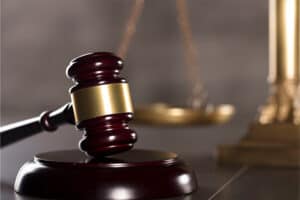
What is a 108 Hearing?
Land condemnation lawyers often refer to having a “108 hearing” in an eminent domain case. But what is that exactly?
North Carolina eminent domain law specifies that all damages in a Department of Transportation condemnation case are to be determined by a jury. All other technical issues, however, are determined by the judge, and a 108 hearing is the legal mechanism by which a party brings those issues before the court.
N.C. General Statute § 136-108. Determination of issues other than damages states:
After the filing of the plat, the judge, upon motion and 10 days’ notice by either the Department of Transportation or the owner, shall, either in or out of term, hear and determine any and all issues raised by the pleadings other than the issue of damages, including, but not limited to, if controverted, questions of necessary and proper parties, title to the land, interest taken, and area taken.
So, for any cases that involve disagreements such as:
- Property lines
- Parcel size
- Who the legal owners are
- Any lienholders or other interest parties
- Whether parcels should be joined or separated at trial (Unity of Use)
- The meaning of taking language used by the DOT in their complaint or taking
- Or any other factual or legal disputes
A hearing may be requested by either party for the court to determine these issues before trial.
It is important to note that the hearing cannot be done before the Department of Transportation has filed the court plat. So it is not unusual for any §136-108 issues to be delayed for a minimum of 6-12 months until the lawsuit is filed and a court plat is filed by the Department.
North Carolina Eminent Domain Lawyers That Protect The Rights of Property Owners
If you are a business owner and have received notice from the government or another entity about the seizure of your property, contact the eminent domain attorneys at Henson Fuerst. We’ll help you understand your legal options and guide you through the entire condemnation process.
Contact us today for a free legal consultation by filling out and submitting the form below or calling our office toll-free at 866-821-3146.
